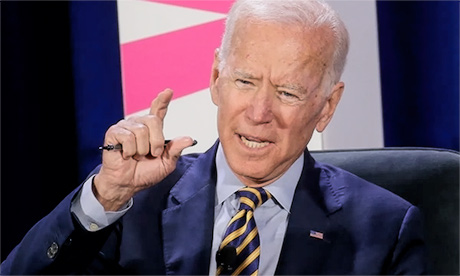It has puzzled me a long time why Catholics are so much more engaged with the abortion issue than members of other Christian churches.
All Churches start their response to abortion from the same baseline – the Commandment “thou shalt not kill”. Yet they do not all arrive at the same destination. Why is this?
The Catholic Church is the only one that teaches unequivocally that the destruction of an embryo from the moment of conception onwards should be made a criminal offence, and that Catholic legislators have an absolute obligation to do everything they can to bring this about.
President Joe Biden’s failure to consent to this position has got him into trouble with US Church leaders and earned a public rebuke from the President of the United States Conference of Catholic Bishops.
Helen Watt, who has replied to my initial Tablet blog on Biden and abortion, makes a number of assumptions that may explain this discrepancy.
It is taken for granted in traditional Catholic ethics, for instance, that there is no such thing as the lesser of two evils.
Evils are bad and you cannot choose between them.
You must refuse to do either of them.
Nor can you justify a bad act with the excuse that good may come of it.
Some acts are absolutely evil, intrinsically so. Abortion is among them. So consequentialism, utilitarianism and relativism are all out.
Traditional Catholic ethics also take it for granted that human life starts at the moment of conception.
And because of the traditional nine ways one may share in the sin of another that I mentioned in my original article, legislators who decline to offer that newly conceived embryo statutory protection must share in the guilt of the sin.
But Catholic ethics can deploy the “doctrine of double effect” to explain why killing enemy soldiers in a war, say, could be morally justified.
Many people outside the Church see that as simple hypocrisy.
Indeed there must be very few outside the Catholic Church who hold all these premises at once, or even some of them, even if they are otherwise fine and decent people.
Recognition of that fact is the fundamental omission from Helen Watt’s article, from which all else flows. She assumes that what is self-evident to her must be self-evident to everybody.
Yet it is not obvious to non-Catholics that human life begins at the moment of conception, and they are not bound to accept the verdict of Pope John Paul II in Evangelium Vitae that it does.
They may not be persuaded by his arguments, and they are not under his authority.
They may say something like “human potential begins at the moment of conception” or “the process of becoming fully human is a gradual one”.
That in fact is the implication of the present abortion law in Britain.
As in the United States, the crucial stage is viability, after which point the foetus could survive outside the womb. That is when legal protection starts.
Even among advocates of “a woman’s right to choose”, abortion after that stage of pregnancy presents a serious ethical dilemma.
Logically, a foetus that can survive outside the womb has to be treated as a separate individual with rights of its own, especially the right to life.
To kill it the moment it is born would be murder.
How can killing it five minutes earlier, when partially born, be anything else? Or a day earlier, before labour has started?
This is an argument that anti-abortionists could easily win, if they were less fixated on banning abortion at all stages.
I am not here arguing that the traditional Catholic ethical approach is right or wrong – for the purposes of this article I am remaining neutral – but pointing out simply that there is an alternative.
Catholics do tend to assume that there is only one way of arguing ethically, the Catholic method, and all other positions are wrong and involve a measure of bad faith or ignorance or both.
But a Catholic politician must know that many of those he represents will sincerely defend views opposed to his own.
And he knows that if they realised that he intended to try to impose his views on them, against their will, they would not vote for him. Continue reading
- Clifford Longley
